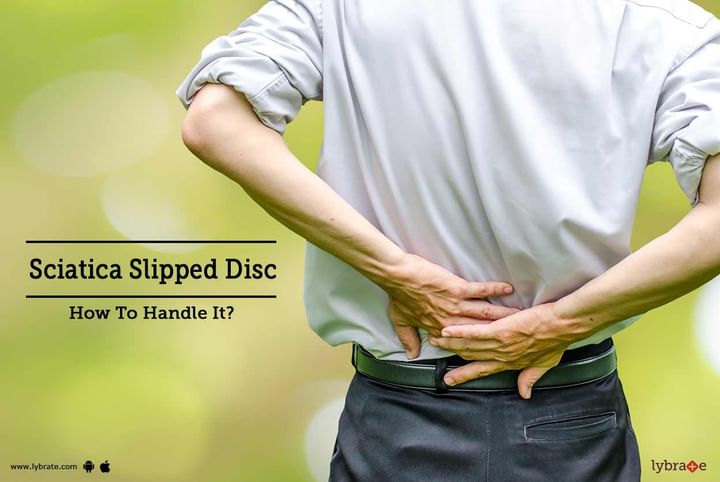Sciatica Slipped Disc - How To Handle It?
We all know that spine is one of the crucial parts of our body. The spine forming bones or vertebrae are protected by spongy and small discs. In healthy condition, these discs play the roles of shock absorbers for our spine and help to retain its flexibility. However, while a disc gets damaged, it might break open or bulge. This particular condition is known as ‘herniated disc’. This condition is also called ruptured or slipped disc. An individual can be suffering from the issue of the herniated disc in any of the part of his/her spine. However, most of the herniated discs influence the lumbar spine or lower back. Sometimes, it happens in cervical spine or neck and rarely this condition is seen in the thoracic spine or upper back.
Causes
A herniated disc might be sourced from the disc erosion. With age, the discs start drying out and they become unable to retain their flexibility. Another reason for which this problem can generate is spine injury. It might result in minute cracks or tears in the disc’s hard outer coating. While it occurs, the thick gel (from the internal part of the disc) might be forced out via the cracks or tears in the disc’s outer layer. As a result, the disc can become break open or bulge.
Symptoms
Whenever a herniated disc starts pressing the nerve roots, the affected person can feel pain, weakness, and numbness in the nerve travelling area of his/her body. When the herniated disc issue affects one’s lower back portion, it can generate numbness and pain in his/her buttock, as well as, down his/her leg and this condition is known as sciatica. It is the most prominent sign regarding a low back herniated disc. If a herniated disc does not provide pressure to the nerve, then the affected person might be suffering from a backache. Sometimes, there is no pain absolutely. Generally, a herniated disc heals automatically with the passage of time. The affected person should take patience and strictly follow the treatment plan provided by the doctor. In case, there is no change in the symptoms within the pre-specified period, then that person should consult the doctor about the appropriate surgery.
Endoscopic Surgery
Endoscopic techniques for the purpose of diagnosis have been started since the late 1970s. Experts initiated the utilization of the popular techniques of endoscopic surgery in the 1990s, however, the particular technique is now used for the spine conditions’ treatment. In this procedure, pain and spine specialist makes use of specialized instrumentation, as well as, video cameras and perform it through minute incisions. For alleviating interruption to one’s tissue and muscles, the surgeon receives access to the respective vertebrae through the placement of collections of tubes in the endoscopic spine surgery. The Endoscopic spine processes are usually executed in either a 23-hour stay or an outpatient setting. The particular minimally invasive spine surgery is utilized for relieving pain sourced from pressing of herniated discs on nerve roots.



+1.svg)
